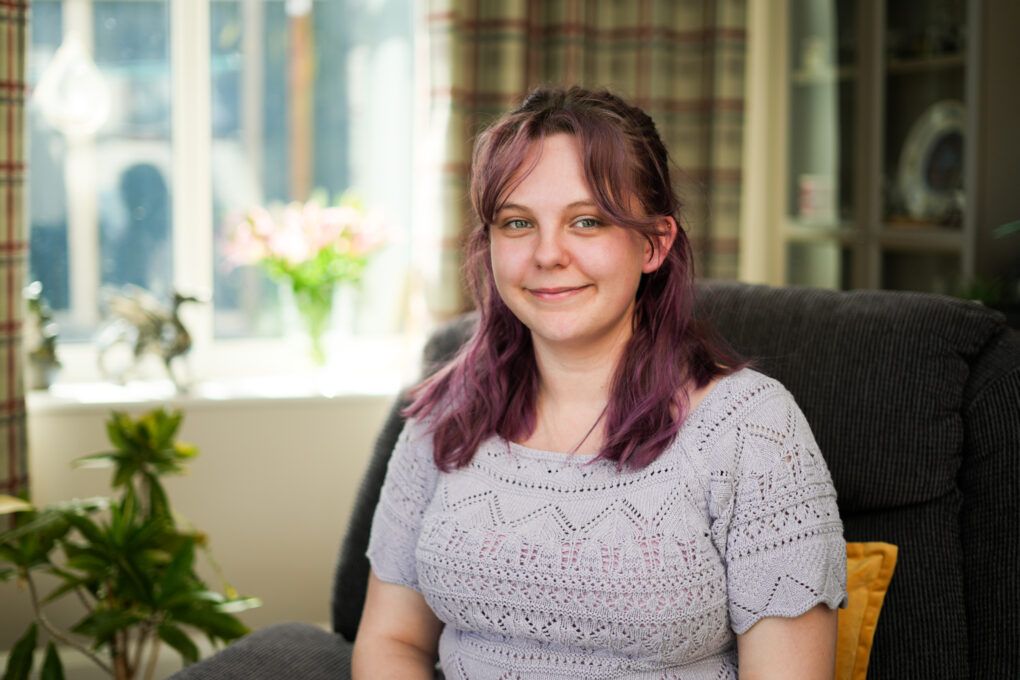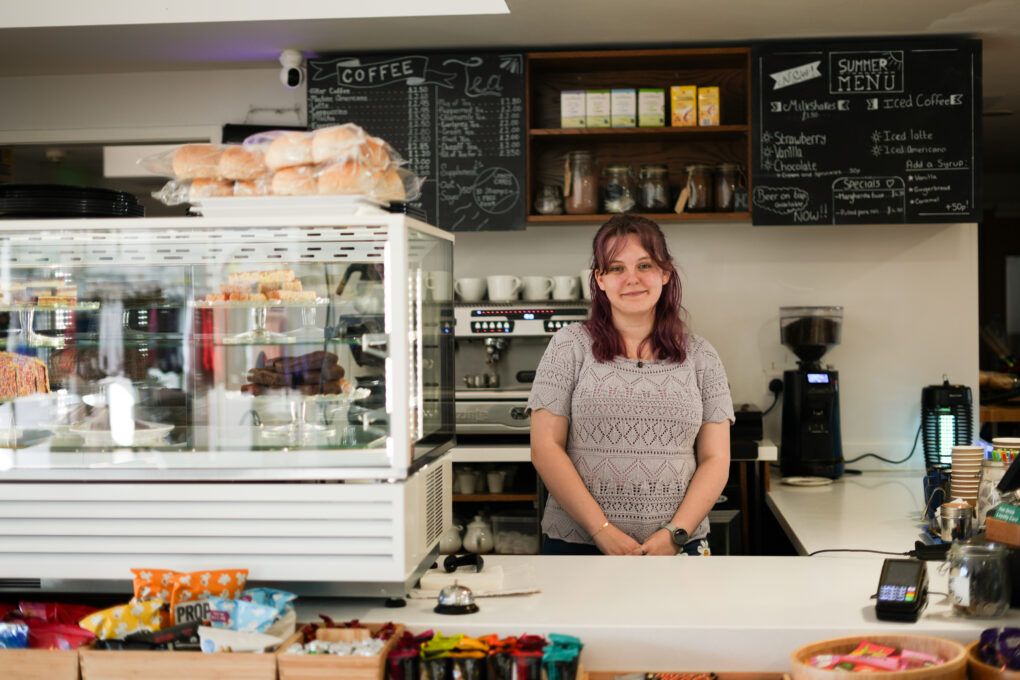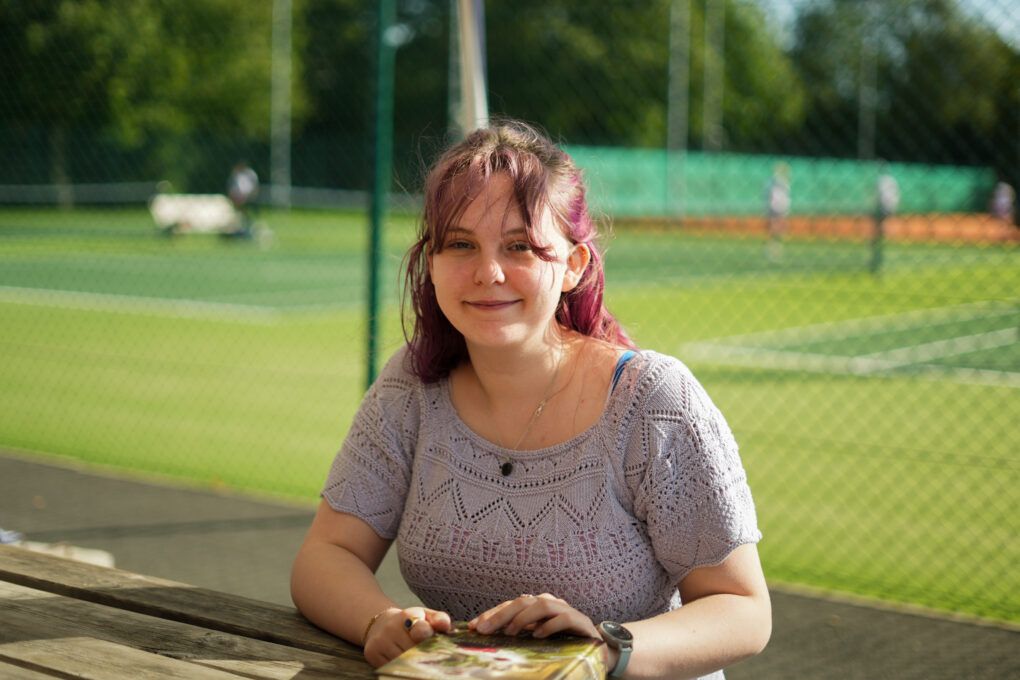‘I live in constant pain with endometriosis. Our Future Health can improve life for people like me’
For many teenage girls, endometriosis isn’t something that’s on their radar. Shannon Beasor was no different. “I knew almost nothing about it,” she says. “I’d read a story when I was younger where it was described as a horrible, painful condition. It was scary to make that connection when, years later, I was finally diagnosed.”
Her medical issues began when she was a teenager. “It all started when I was 15,” says Shannon, who is now 21 and a student at The University of Liverpool, as well as an Our Future Health volunteer. “I fainted because I was in so much pain.”
Over the next few years, Shannon was diagnosed with five different conditions and had three blue-light trips to hospital. Her doctors struggled to join the dots.
“They finally discovered a giant cyst on my ovary and realised it was most likely endometriosis,” she recalls. She was given various treatments, with little success, before finally undergoing a diagnostic laparoscopy – open surgery to examine the organs in the abdomen. Doctors discovered lesions on Shannon’s abdomen, along with a twisted ovary, and lesions that caused her bladder, bowel and uterus to fuse together.
Six years after first experiencing abdominal pain, Shannon was finally given an official diagnosis of endometriosis.

A confusing condition with devastating impact
The NHS defines endometriosis as “a long-term condition where tissue similar to the lining of the womb grows in other places, such as the ovaries and fallopian tubes”. It’s estimated that 1.5 million people of reproductive age are currently living with the condition, with symptoms ranging from chronic pain and extreme fatigue to depression and problems conceiving.
Despite this, diagnosis of the condition is often difficult – Shannon’s experience, of lengthy delay and misdiagnosis, is not uncommon. It’s a sign that knowledge about the condition remains limited, and much research is still needed.
“For me, not a day goes by where at least one part of my body doesn’t hurt,” says Shannon. “I have some form of nausea and abdominal pain spreading to my legs and back on a daily basis. Before my surgery, I had to use a walking stick most days, but now I only need it when it’s particularly bad during flare-ups.
“I’m also tired all the time – all my energy is spent trying to make it through the day. Endometriosis has changed who I am and how I define myself.”
Shannon says she always carries painkillers with her, as often the pain is so extreme that she finds it hard to move. “There are times when I have to cancel plans with friends because of the pain. My friends joke that I always have a first aid kit on me, but I have to, because if I didn’t, I could be in the middle of nowhere and I wouldn’t be able to physically move.”
Although research is ongoing, there is currently no known cause of endometriosis. Some research has been done into genetic risk factors, which found it often runs in families. “I don’t have endometriosis in my family, but many of my family members have had issues with reproductive health,” says Shannon.

Online support
Due to the lack of information on endometriosis, Shannon took it upon herself to research the condition and join online support groups. “Even within the past six or seven years, knowledge around endometriosis has advanced,” she says.
Despite this, Shannon believes there remains a long way to go in terms of learning and discovering more about the condition. “Historically, medicine focused on men, which meant many primarily female conditions were pushed to the side.
“Menstruation has been a taboo topic for so long, that a lot of people just said, ‘Having pain with your periods is normal.’ But it’s not normal, and now people are fighting for it to be talked about and discussed, which is why we know more about it and things are getting better.”

Leading research
Shannon’s experience motivated her to join Our Future Health at our Liverpool clinic in June. “Hearing about this programme was one of the most important pieces of news I’ve had in a long time,” she says.
“It’s not right that people like me are living in pain every day with no idea why and no proper treatment plans in place. No one is expecting a cure, but to have something to say that this will help would be amazing.”
Our Future Health’s Executive Director of Science, Dr Michael Cook, explains that our programme will enable researchers to conduct a variety of studies to progress endometriosis research needs:
“The translational focus of the Our Future Health research programme will enable scientific investigation of causes and risks; treatment outcomes including repeated surgery; patient health including emotional and psychological wellbeing; non-invasive diagnostic biomarkers and postsurgical surveillance; and trials of new/alternative treatments and management options.
“Our Future Health will help researchers to fill knowledge gaps that are at the top of patient, clinician, and researcher lists.”
Such discoveries will enable crucial steps to be taken towards improving endometriosis healthcare, including reducing misdiagnosis and the patient burdens that misdiagnosis brings – which is exactly what happened to Shannon.
As a result, she is encouraging everyone to join Our Future Health, whatever your age or background. “The reward is so much bigger than the time it takes to take part,” she says. “If this research will help someone else have a little less pain in their life, why not help?”

Let’s prevent disease together
By volunteering for Our Future Health, you can help health researchers discover new ways to prevent, detect and treat common conditions such as diabetes, cancer, heart disease, stroke and Alzheimer’s.